Martyrdom Narrative Rejected at Home and Abroad (Sept. 13) – Black Americans and many overseas are pushing back against efforts to martyr Charlie Kirk. Black community voices – from online influencers to pastors – note that while no one deserved the killing, Kirk’s legacy of racist, divisive rhetoric means “how you die doesn’t redeem how you lived,” as one D.C.-area preacher put it. Meanwhile, world leaders of the far right are hailing Kirk as a fallen hero: Hungary’s prime minister blamed “the left’s hate,” and 150 supporters rallied at a U.S. embassy in Berlin. The contrasting responses underscore a selective compassion – with Black Americans refusing to canonize a man who vilified them, even as ultra-conservatives globally turn Kirk into a political martyr.
Trump Turns to National Guard ‘Workaround’ in Cities (Sept. 14) – The Trump administration is deploying National Guard troops to fight crime in predominantly Black cities by exploiting a legal loophole. Under “Title 32” status, Guard units remain under state control but with federal funding – allowing them to act as law enforcement without violating posse comitatus. Memphis officials, for example, were left scrambling with questions after Trump announced Guard help over local objections. Civil liberties groups call the move a dangerous end-run around local authority, noting that Trump is bypassing mayors and effectively federalizing urban policing in the name of public safety.
Judge Halts HUD’s Homeless Grant Gag Order (Sept. 12) – A federal judge blocked a new U.S. HUD rule that tied homelessness funding to support for Trump administration positions. The agency had abruptly ordered cities to certify alignment with Trump’s stances on immigration enforcement and transgender policies as a condition for $75 million in grants. In Providence, a judge issued a restraining order, calling the requirement unlawful and “chaotic.” Homeless service providers – many in Black communities – breathed a sigh of relief, as the rule threatened to penalize inclusive local programs. The court’s smackdown preserves critical funds while a lawsuit proceeds, and it warns federal officials against blackballing agencies over political litmus tests.
Beaten Black Driver Sues Jacksonville Cops (Sept. 14): William Anthony McNeil Jr., a 22-year-old Black college student, filed a federal civil rights lawsuit after Jacksonville deputies smashed his car window, dragged him out, and beat him during a traffic stop in February. His attorneys Ben Crump and Harry Daniels say McNeil “was calm and compliant,” yet officers punched his face, fractured a tooth, and he now suffers a traumatic brain injury. The State Attorney’s Office declined to press criminal charges, even as the lawsuit argues JSO’s policies enable “racial profiling and illegal or excessive use of force” with no accountability. McNeil’s case isn’t just about him; it’s pushing for policy changes in Jacksonville law enforcement’s use-of-force and supervisory practices.
Illinois Tax Sales Slammed as Unconstitutional (Sept. 15) – Illinois faces mounting lawsuits for letting private investors profit off Black homeowners’ tax debts. In Cook County, officials have routinely sold delinquent property tax bills to investors, who can seize homes if debts aren’t repaid – a practice the Supreme Court ruled unconstitutional in 2023. Illinois is now the only state yet to reform its tax sale law. Hundreds of Black families on Chicago’s South and West Sides have already lost houses over small tax bills. With legislators stalling, courts may force Illinois to finally curb the “tax vultures” and stop stripping generational wealth from Black neighborhoods.
Feds Pull Plug on Pollution Projects in Black Areas (Sept. 15) – The Trump administration quietly axed 22 environmental and health projects in Black communities across the South. A new analysis found that grants to fix crumbling sewer systems, monitor toxic air, and mitigate flooding in long-neglected Black neighborhoods were all canceled as part of Trump’s anti-“DEI” push. From rural Alabama, which lost funds to replace failing septic tanks, to Louisiana’s Cancer Alley, where air monitoring was halted – residents are reeling. Officials claim budget concerns, but advocates call it cruelty: critical environmental justice efforts were making headway on decades-old health hazards until Washington’s abrupt pullback left these Black communities in the lurch again.
Ex-Cop Dodges Verdict Again in Teen’s Death (Sept. 12) – For the second time, a jury deadlocked in the civil trial of Joseph Mensah, a former Wisconsin police officer who killed a Black 17-year-old. Mensah shot Alvin Cole outside a mall in 2020 – his third fatal shooting of a person of color in five years – but prosecutors declined to charge him criminally. Cole’s family sued for wrongful death, yet this week’s retrial ended with a hung jury, mirroring an earlier trial in March. The repeated failure to reach a verdict frustrates the victim’s family and local activists, who say it highlights the difficulty in getting accountability from police through the courts, even in egregious cases.
Trump Slashes Minority College Grants, Boosts HBCUs (Sept. 15) – The Education Department reallocated nearly $500 million in higher-ed funding, yanking money from some minority-serving programs to give a one-time boost to HBCUs. The move came days after the administration cut $350 million from grants for Hispanic-serving institutions, calling them “unconstitutional quotas.” Now those funds and more are redirected into historically Black colleges (and tribal colleges), a 48% jump in HBCU support this year. Officials claim they’re ending “racial preferences” and rewarding merit – but Latino and Asian American educators slammed the cuts as a divide-and-conquer tactic. HBCU leaders say they’ll take the sorely needed dollars but won’t be pawns in defunding other minority education programs.
HBCU Football Classic Fills NFL Stadium (Sept. 13) – In New Jersey, an HBCU rivalry game drew an estimated 50,000 fans, proving Black college sports’ cultural and economic might. Howard University and Morehouse College faced off in the annual HBCU New York Classic at MetLife Stadium, home of the NFL Giants and Jets. More than a football game, the weekend featured step shows, career expos, and concerts celebrating Black excellence. Organizers say the Classic pumped about $12 million into the region. With sponsorships and TV coverage growing, the turnout sent a message: investing in HBCU athletics and traditions can pay off big – and it galvanizes alumni and youth in a way predominantly white college events rarely do.
LGBTQ+ Housing Program Shutters After Funding Cut (Sept. 14) – An innovative housing program for LGBTQ+ young adults of color is closing in Akron, Ohio, after federal officials pulled its grants. The non-profit CANAPI had provided transitional housing and support to Black transgender women and other at-risk LGBTQ+ youth. But Trump’s HUD abruptly ended a $330,000 funding stream, labeling such targeted programs “wasteful.” With that lifeline gone, CANAPI announced it must shut down “Lavender Landing,” its 18-29 housing initiative, by October. Advocates decried the move as a targeted attack on vulnerable queer communities. They warn that without these services, more Black trans and nonbinary youth will face homelessness – a crisis now worsening due to what they call political cruelty.
Missing Black Woman – Ashley Bell-Paul, 26 (Reported Sept. 11) – Detroit police are searching for Ashley Bell-Paul, a 26-year-old Black woman last seen leaving her east-side home on Aug. 24. Family reported her missing on Sept. 11 after weeks with no contact. Bell-Paul is 5’1”, about 105 lbs., with black hair and brown eyes. Loved ones say she has schizophrenia and depression, and it’s unlike her to vanish. Investigators have few leads so far. Anyone with information is urged to call the Detroit Police 5th Precinct at 313-596-5540 or 1-800-SPEAK-UP. Ashley’s family is pleading for the public’s help, determined not to let her case go ignored.
Missouri Forms Task Force on Missing Black Women (Sept. 15) – Confronting a chilling disparity, Missouri has created a first-ever task force for missing and murdered Black women and girls. A new state law establishes the panel to examine why Black females in Missouri go missing or fall victim to violence at disproportionately high rates – and why their cases often get less law enforcement attention. State Sen. Angela Mosley, who sponsored the bill after seeing similar efforts succeed in Minnesota, said the task force will start meeting in October. Members include police, community advocates, and survivors, all aiming to identify concrete policy fixes. “For too long Black women’s cases have been deprioritized,” one member said. “This is about making sure our sisters and daughters don’t slip through the cracks anymore.”
Civil Rights Museum Expands to Inspire New Activists (Sept. 15) – Atlanta’s National Center for Civil and Human Rights unveiled a major expansion of its exhibits and facilities, a timely investment as voting rights and history education come under attack. The privately funded expansion adds immersive galleries highlighting modern movements – from Black Lives Matter protests to LGBTQ+ pride – alongside civil rights era displays. New programming will train young “change agents” in community organizing and social justice leadership. Museum officials say the upgrade, years in the making, is meant to bridge past and present. With culture wars raging over how Black history is taught, Atlanta is doubling down on truth-telling – and empowering the next generation to carry the movement forward.
GOP Redistricting Blitz Threatens Black Districts (Sept. 13) – At Trump’s urging, Republican state legislators are accelerating redraws of congressional maps – a strategy that could oust several Black members of Congress. The White House this week cheered on efforts in states like Alabama, Louisiana, and North Carolina to defy or circumvent court orders to create fairer majority-Black districts. Instead, GOP mappers are pushing plans to break up Black voting blocs and secure more Republican seats. Civil rights groups warn that “Project 2025” redistricting maneuvers could roll back representation gains from the Voting Rights Act. Black Caucus lawmakers say they’re literally fighting for their political survival, as partisan mapmakers target districts held by Black Democrats in hopes of flipping control of Congress.
White House Targets Judge After Violent Crime (Sept. 14) – The Trump administration seized on a grisly Charlotte murder to attack a local judge, Magistrate Judge Teresa Stokes, it labeled “soft on crime.” After a man out on bond killed a young woman, the White House issued a statement blaming the tragedy on a North Carolina judge known for embracing bail reform and racial equity in sentencing. Trump officials blasted the judge by name – even noting he had once been praised by Vice President Kamala Harris – and suggested her “liberal” approach enabled the murder. Legal observers were stunned at the public denunciation, calling it an assault on judicial independence and a scare tactic to chill reforms. Local Black leaders said the administration is weaponizing a tragedy to halt justice system changes aimed at fairness.
Harlem Parade Lifts Black Joy and Unity (Sept. 15) – Thousands lined the streets of Harlem for the 54th annual African American Day Parade, a vibrant display of Black culture and pride that felt especially vital this year. High school marching bands, Pan-African flags, drill teams, and community floats rolled down Adam Clayton Powell Jr. Boulevard on Sunday afternoon. Elected officials and elders joined in, but the loudest cheers were for everyday heroes – educators, nurses, activists – honored as grand marshals. “This is about celebrating us, in good times and bad,” said one organizer. With racial tensions high nationwide, the parade provided a jubilant reminder of Harlem’s enduring spirit and the power of coming together in fellowship.
ICE Raids Chill ‘Sanctuary’ Cities (Sept. 14) – Immigration crackdowns ramped up in several Democrat-led cities as federal agents conducted surprise operations despite local sanctuary policies. In Chicago and Boston, ICE teams in tactical gear swept into neighborhoods known for large Black immigrant populations from Haiti and Africa. Dozens were arrested, spreading fear through churches and community centers that have declared themselves safe havens. City leaders blasted the raids as political stunts ordered by Washington. Immigration advocates note the irony that these highly publicized “law and order” actions came just weeks after Trump slashed refugee admissions to record lows. For many Black and Caribbean immigrant families, the message was clear: no city can truly shield them now, and they must prepare for the worst.
New Trial for 3 Memphis Officers in Tyre Nichols Death (Sept. 12) – In a rare legal twist, a federal judge threw out the prior convictions of three ex-Memphis police officers in the killing of Tyre Nichols and ordered a completely new trial. U.S. District Judge Sheryl Lipman found that the original trial judge harbored an undisclosed bias – he believed a gang within the police department might have targeted his clerk during the case. Such remarks, made by the judge behind closed doors, raised “too high a risk of bias,” Lipman ruled. The three officers – who had been found guilty of civil rights offenses last year – will now be retried from scratch. Nichols’ family braced for another long road to justice, frustrated that a technicality derailed what looked like a step toward accountability in the brutal death of the 29-year-old Black motorist.
City Settles Police Killing Case for Peanuts (Sept. 14) – Chattanooga, Tennessee agreed to pay just $180,000 to settle a lawsuit over the police killing of Roger Heard Jr., a 37-year-old Black man shot by undercover officers last year. The payout, split among Heard’s five children, was announced quietly at a city meeting. Heard was killed at a gas station as officers tried to serve a warrant; his family contended in court that police used excessive force. While city lawyers insist the modest settlement isn’t an admission of wrongdoing, activists call it “hush money” that doesn’t begin to deliver justice. They point out Chattanooga’s willingness to settle quickly – and relatively cheaply – suggests officials knew a trial could expose ugly truths about the encounter.
Chicago Council Blocks Payout in Police Shooting (Sept. 15) – In Chicago, a bid to compensate the family of Dexter Reed, a Black man killed by police, was shot down by a City Council committee. City lawyers had negotiated a $1.25 million settlement, arguing it would cost far more to fight the wrongful death lawsuit at trial. But a bloc of aldermen aligned with the police union refused, painting Reed – who allegedly fired a gun and wounded an officer during a 2024 traffic stop – as undeserving of any payout. The vote, 15–12, means the case will likely head to court. Reed’s family and supporters are outraged, noting that officers fired 96 shots at his vehicle (even after he lay motionless) in a chaotic response widely criticized by the police oversight agency. “This was an execution, caught on video,” said the family’s attorney, who vows to take the evidence before a jury.
Portland Reclaims a Piece of Black History (Sept. 9) – A new affordable housing project opened in Portland’s historically Black Albina district, aiming to help right past wrongs. The 94-unit development, called Albina One, sits on land that was a thriving Black community until urban renewal and freeway construction decimated the area decades ago. Community leaders held a ribbon-cutting and hailed it as a first step toward restoring what was lost. “You can’t undo the damage, but you can start bringing Black families back home,” said an Albina elder at the ceremony. The project offers family-sized units and is prioritizing displaced residents or their descendants. It’s a tangible win for advocates who fought for years to secure the site and prevent Albina’s legacy from being erased by gentrification.
Maryland Targets Racial Housing Gaps (Sept. 3) – Maryland Gov. Wes Moore signed an executive order launching a sweeping effort to expand affordable housing – with an emphasis on equity. At an event in Howard County, the state’s first Black governor outlined plans to streamline development and steer resources to areas where housing costs push out communities of color. Moore noted that Maryland’s Black homeownership rate lags far behind whites, and called stable housing “a racial and economic justice issue.” The order sets up a new housing accelerator unit to cut red tape and improve access to down payment assistance. Advocates say it’s an unprecedented step by the state to tackle the legacy of redlining and exclusionary zoning that have contributed to Maryland’s racial wealth divide.
Bank Program Revives Black Neighborhoods (Sept. 14) – A major Midwest bank is pumping tens of millions into long-neglected Black neighborhoods, and results are starting to show. Fifth Third Bank’s “Empowering Black Futures” initiative has funneled $180+ million since 2021 into nine communities across seven states – funding everything from new housing in Louisville’s Russell area to a fresh grocery store and business incubator in Detroit’s East Warren corridor. This week, Fifth Third announced North Nashville will be the next recipient, with a $20 million commitment to revitalize that historic Black district. The multi-year program is banking on a holistic approach: grants for home repairs, support for Black small businesses, new full-service bank branches, and financial literacy buses roaming the streets. Early signs are promising, with vacant lots turning into affordable homes and residents gaining jobs rebuilding their own neighborhoods.
African Union Joins G20, Diaspora Cheers (Sept. 14) – The African Union was officially admitted as a permanent member of the G20 group of nations, a landmark moment celebrated by African diaspora communities in the U.S. and worldwide. Activists and professionals of African descent hailed the move – which gives the 55-nation African bloc a direct voice in global economic decisions – as long overdue recognition. “Africa’s issues can’t be ignored on the world stage now,” said a Ghanaian American economist in D.C., who noted that African leaders can push harder on climate aid and debt relief. While the news got modest coverage in mainstream press, WhatsApp and social media groups across the diaspora lit up with pride. For many, seeing the AU at the same table as the U.S., China and others offers hope that policies affecting African peoples – from trade to pandemic response – will better include African perspectives going forward.
CDC: Maternal Deaths Drop Except for Black Moms (Sept. 13) – New federal data on U.S. maternal mortality brought mixed news and a glaring disparity. The CDC reported that overall pregnancy-related deaths declined in 2024 from peak pandemic levels. But mortality for Black women did not improve – in fact, the racial gap widened further. Black mothers remain about three times more likely to die from childbirth complications than white mothers, a crisis unchanged by the national decline. Health officials attributed the overall improvement to COVID waning and better care, yet they acknowledge systemic inequalities are still driving Black maternal deaths. Advocates renewed calls during Congressional Black Caucus week for measures like extending postpartum Medicaid coverage and investing in Black midwives. “A rising tide is not lifting all boats,” one expert said. “Black women are still drowning in preventable deaths.”
Black Women Anglers Make a Splash (Sept. 4) – An all-Black women’s competitive fishing team is shattering stereotypes on the professional bass circuit. The five members of the “Ebony Anglers,” based in North Carolina, have been reeling in trophies and breaking barriers in a sport where Black women are nearly invisible. Featured this week in Ebony magazine, the team talked about how they formed during the pandemic and went on to win a major kingfish tournament their first year out. Beyond competition, they host youth fishing clinics to introduce more kids of color to outdoor sports. Their success is a reminder that Black excellence takes many forms – even with a rod and reel. As one angler put it: “We’re showing the world Black women can do anything, including catch the big one.”
South Sudan’s Hoop Dreams Highlight Diaspora Talent (Sept. 10) – A Cinderella story in international basketball is doubling as a celebration of the African diaspora. The South Sudan men’s team – led by American-born players of South Sudanese heritage – clinched an Olympic berth at the FIBA World Cup this week. The fledgling team, representing a nation only 12 years old, won games against established squads and secured Africa’s sole automatic spot for Paris 2024. Many of the players are the children of refugees who resettled in places like Utah, New York, and Illinois. Their triumph has ignited pride among U.S. communities from the South Sudanese and broader East African diaspora. Fans gathered in Minneapolis and Omaha to cheer on the team via livestreams at odd hours. For a country plagued by conflict, the basketball win – powered in part by diaspora talent – offers a unifying glimmer of hope and puts a positive global spotlight on South Sudan.
Little Rock Marks 68 Years Since Integration (Sept. 15) – In Little Rock, Arkansas, a modest ceremony commemorated the 68th anniversary of the Little Rock Nine’s historic school integration. At Central High School – where nine Black teenagers faced down mobs and soldiers in 1957 to desegregate the halls – alumni and city leaders gathered to honor their courage. The remembrance comes amid renewed battles over how such history is taught: Arkansas recently made moves to downplay or even ban lessons on structural racism, which critics say dishonors the Nine’s legacy. One of the original Little Rock Nine, now in her 80s, spoke at the event. “The truth of what we endured must be told,” she urged the students in the crowd, imploring them to carry forward the fight for equality. In a time of book bans and “anti-woke” laws, the low-key anniversary in Little Rock was a poignant reminder of progress fought for – and the risk of reliving history if it’s forgotten.
Beyoncé’s Tour Scholarships Aid HBCU Students (Sept. 14) – Music icon Beyoncé is quietly turning her blockbuster tour into a boost for Black colleges. At her Renaissance World Tour stops, the singer’s BeyGOOD Foundation has been awarding $100,000 scholarships to students from local HBCUs – a total of 10 scholarships so far on this tour. One recipient in New Orleans burst into tears on stage when surprised with the award, which will cover her tuition at Dillard University. Unlike the concert’s viral silver fashions and dance breaks, these scholarship presentations have received little press. But for the students, it’s life-changing. Beyoncé, whose late uncle was an HBCU professor, said she wants to nurture “the next generation of history-makers.” As her tour heads into its final U.S. dates, she’s leaving more than just memories in each city – she’s investing in Black excellence.
Caribbean Diaspora Rallies at UN Summit (Sept. 15) – As world leaders converged in New York for the UN General Assembly, Caribbean American communities mobilized to make their voices heard. Activists from the Jamaican, Trinidadian, Haitian and other island diasporas held a “Caribbean Matters” forum alongside the UN meetings – pressing issues like climate change funding, debt relief, and migrant rights. They were joined by several Caribbean heads of state, who have increasingly leaned on expats in the U.S. for support and advocacy. Prime Minister Mia Mottley of Barbados met with youth leaders in Brooklyn, urging the diaspora to lobby U.S. lawmakers for climate justice (rising seas threaten to swallow island nations). For many first- and second-generation Caribbean Americans, it was a chance to bridge local activism with global policy. Their message: decisions made in Washington and at the UN have real stakes for Caribbean peoples, and the diaspora can be a powerful bridge in those discussions.
Influential Black Disability Advocate Dies at 28 (Sept. 13) – Rolling Ray, a social media star known for his wit, style and use of a wheelchair, passed away unexpectedly at age 28 – sparking an outpouring of love from Black disability communities. Real name Raynard Hampton, Rolling Ray first gained fame on MTV and Instagram, captivating followers with his humor and unfiltered commentary on life as a young Black gay man with a disability. Despite health challenges, he leveraged his platform to speak on issues like accessible housing and healthcare biases. Fans and fellow influencers honored him online for bringing visibility to Black disabled voices often ignored in pop culture. “He lived life out loud and on his own terms,” one friend wrote. Rolling Ray’s untimely death is being mourned as not just an internet personality lost, but a genuine advocate who used fame to amplify others living at the intersection of multiple marginalized identities.



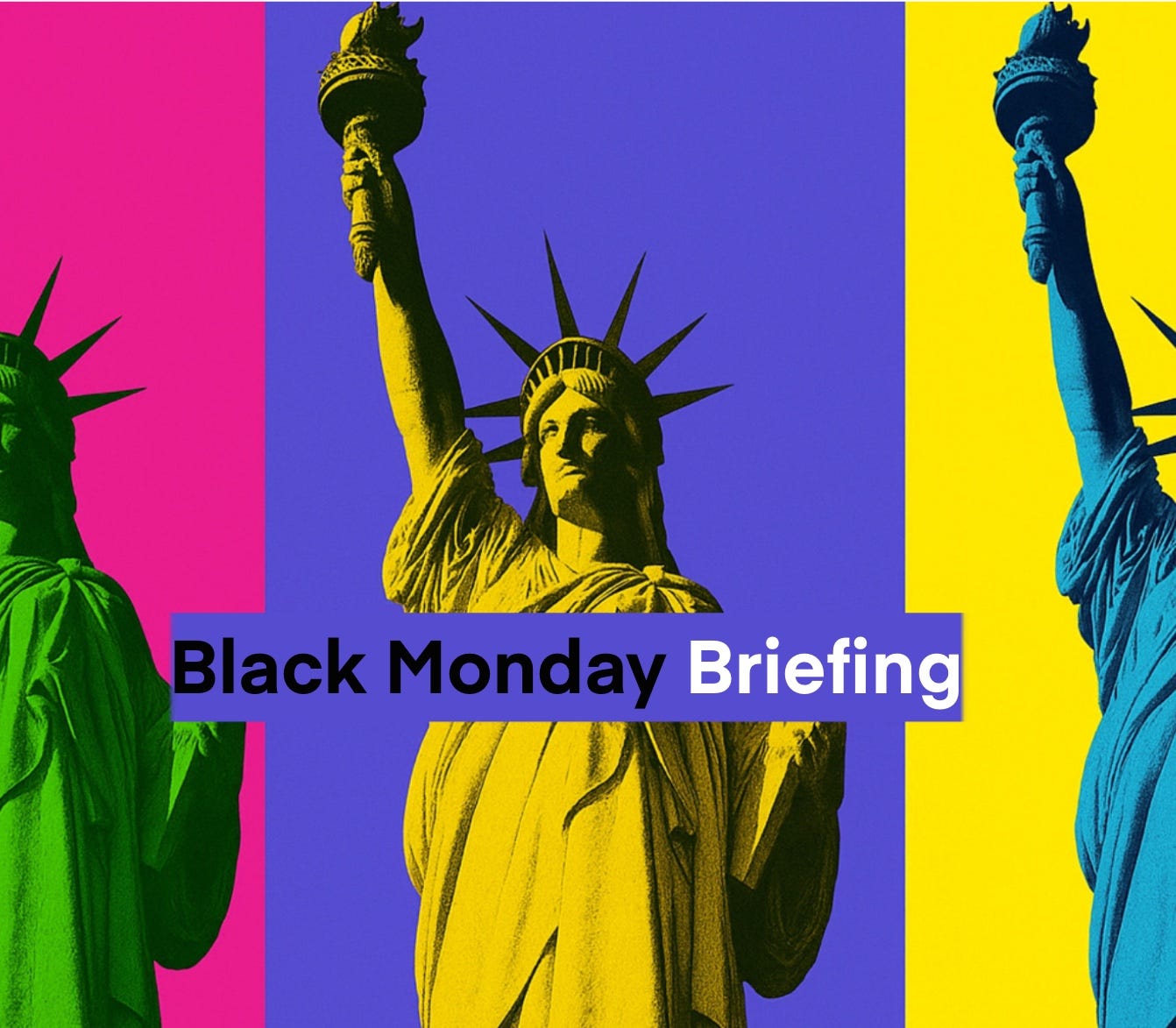

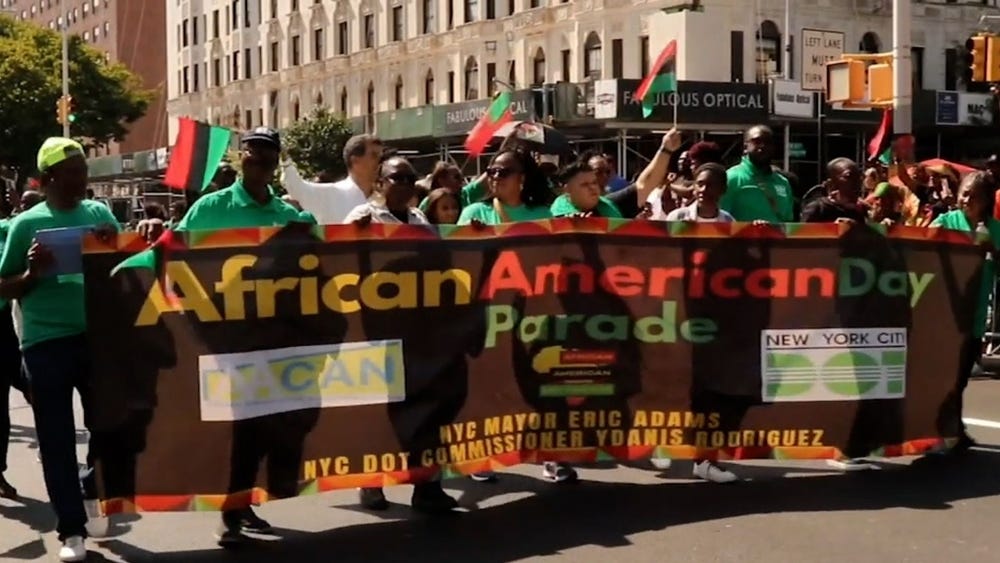
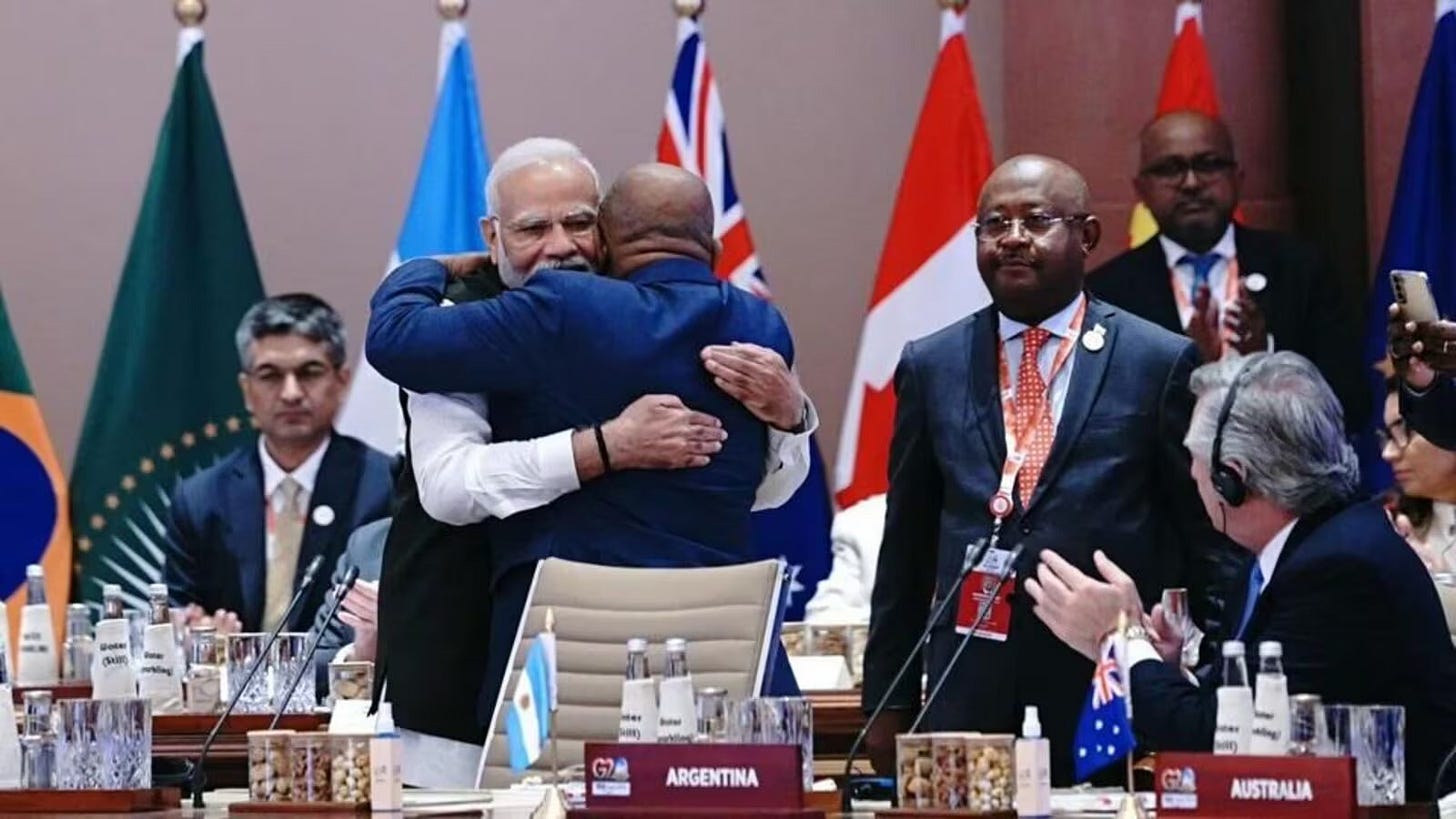
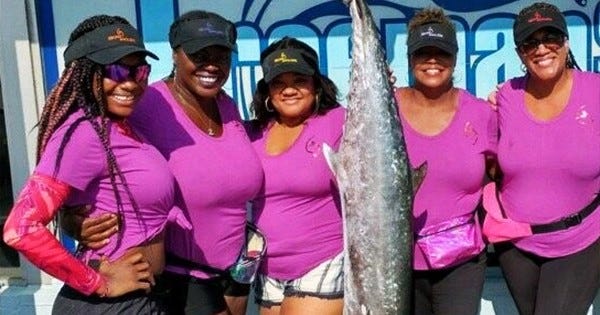
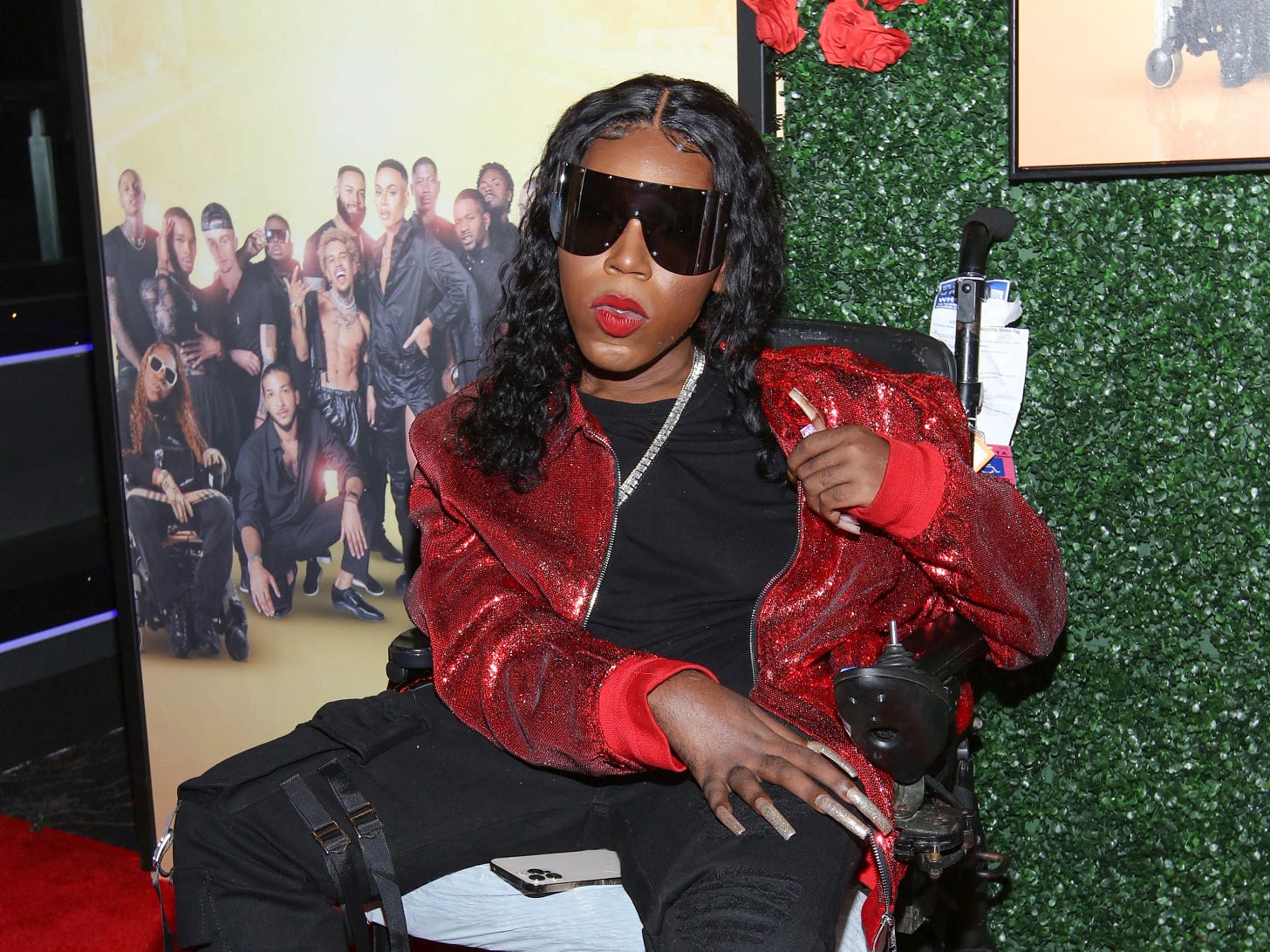
Daunting developments and inspiring achievements. More details from the big picture buried or ignored by legacy media. Thank you.
Wow! How do you do it? I was aware of stories 1-6 and maybe 3-4 others but none of these: 13-16 & 18-19. Special emphasis on stories 21-23.
Thank you for this. Restacked!